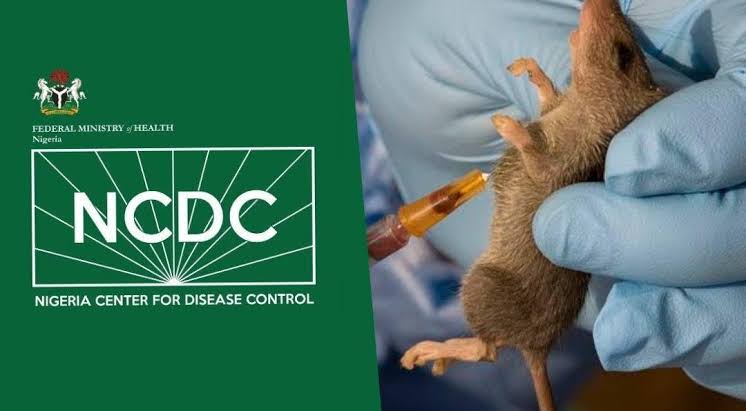
The Nigeria Centre for Disease Control and Prevention (NCDC) has reported a surge in the fatality rate of Lassa fever, as the virus continues to spread across multiple states with new confirmed cases and additional deaths.
This update was contained in the NCDC’s latest situation report for Epidemiological Week 23 (June 2–8, 2025), published on its official website on Wednesday.
According to the agency, a total of 143 deaths have been recorded from 758 confirmed Lassa fever cases since the start of the year. This represents a case fatality rate (CFR) of 18.9 per cent—an increase from the 17.8 per cent recorded during the same period in 2024.
During the reporting week, 11 new cases were confirmed—up from eight the previous week. These cases were detected in Ondo, Edo, Bauchi, and Taraba States.
So far in 2025, 18 states across 96 Local Government Areas have reported at least one confirmed case. However, 90 per cent of all infections have come from just five states: Ondo (31%), Bauchi (25%), Edo (16%), Taraba (15%), and Ebonyi (3%).
The most affected age group remains young adults aged 21 to 30, with a median age of 30. The report also noted one additional healthcare worker infection during the week, bringing the total number of affected health workers this year to 23.
The NCDC highlighted several ongoing challenges worsening the outbreak, including delayed presentation of cases, poor health-seeking behaviour, high treatment costs, inadequate sanitation, and low public awareness.
In response, the agency has activated a multi-sectoral Incident Management System and deployed 10 Rapid Response Teams to the worst-hit states. Other interventions include training health workers on case management, launching an Infection Prevention and Control (IPC) e-learning platform, conducting community sensitisation, implementing environmental health measures, and collaborating with media and stakeholders for public outreach.
The NCDC urged Nigerians to maintain good hygiene, seek early medical care when symptoms appear, and avoid contact with rodents and their excreta, which are the primary carriers of the virus.
Lassa fever is a viral hemorrhagic illness mainly transmitted through contact with urine or faeces of infected rats.








